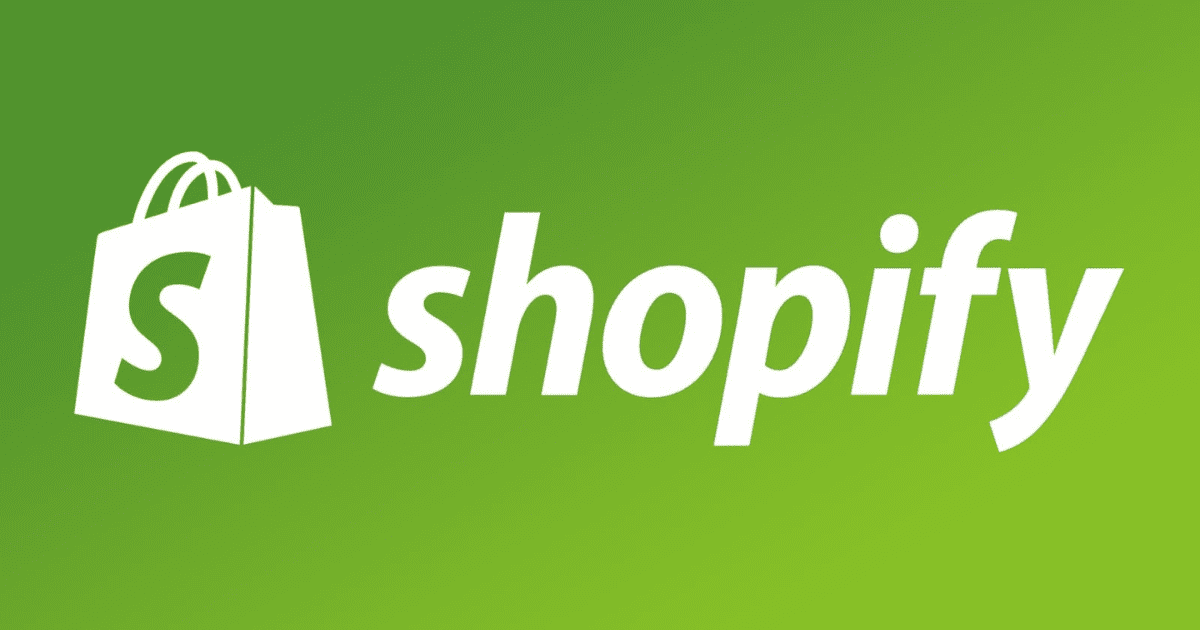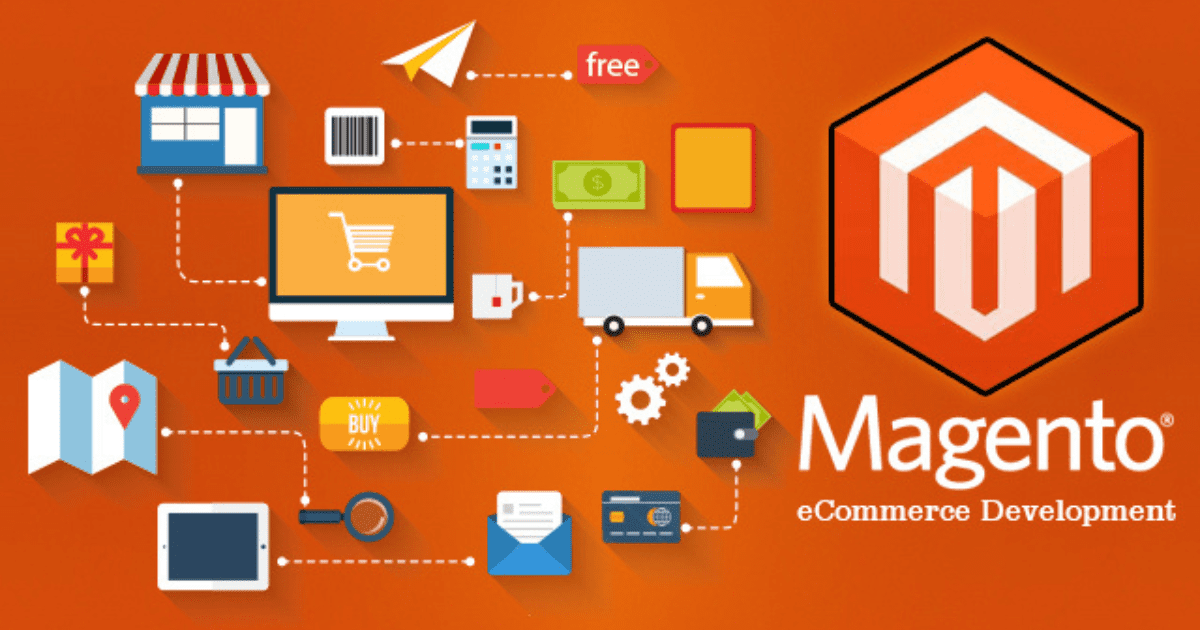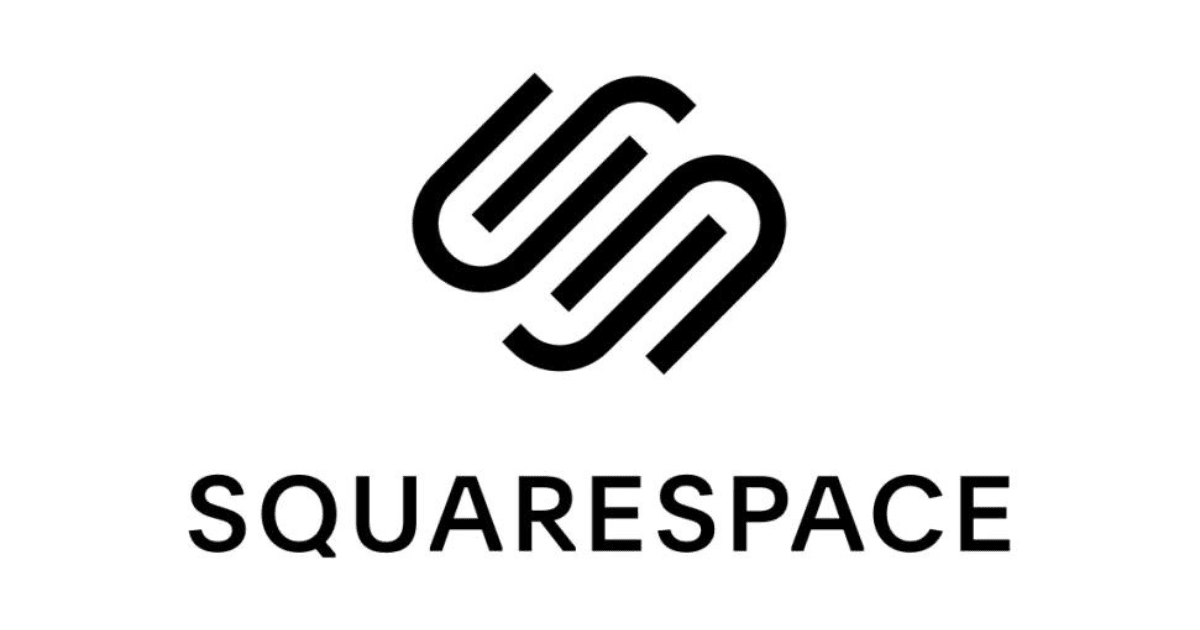Stepping into the world of online business? Then you’ve likely asked yourself: “What is an Ecommerce platform?” As we stride into 2024, this question takes on even greater significance. The Ecommerce platform you choose to power your business can be the make-or-break factor in the success of your venture.
An Ecommerce platform is the backbone of any online retail enterprise. It enables businesses to showcase their products, connect and engage with customers, and execute transactions smoothly and securely. The right Ecommerce platform can transform your business operations, catapulting your brand to unprecedented heights in the digital marketplace in 2024.
But with an ocean of choices, how do you select the best Ecommerce platform for your needs? The answer lies ahead. Stay with us as we discuss our research into some of the top Ecommerce platforms of 2024, unraveling their unique features and how they can propel your online business to new frontiers.
Defining Ecommerce Platforms
An Ecommerce platform is a software application that lets businesses establish an online store and conduct business online. These platforms encompass everything from inventory management to payment processing, making them a one-stop shop for all your Ecommerce needs. They serve as a virtual storefront, allowing businesses to showcase their products and services on the World Wide Web.

Key Features of Ecommerce Platforms
These are some of the key features that make Ecommerce platforms the backbone of online businesses:
- Inventory Management: This feature keeps track of stock levels and provides real-time updates on available products.
- Payment Processing: An effective platform should accept payments through multiple channels, including credit cards and digital wallets.
- SEO Tools: Search engine optimization tools help drive internet traffic to your ecommerce website, increasing visibility and boosting retail sales.
- Marketing Tools: These include email marketing capabilities and social media channel integration, which are essential for promoting your products to a broader audience.
- Mobile App: With the rise in mobile devices for online shopping, a mobile app can significantly enhance your business’s reach.
- Technical Support: Reliable technical support ensures smooth operations and promptly addresses issues.
- Customizable Templates: These allow you to design your own website, reflecting your brand’s unique identity.
- Drag and Drop Functionality: This simplifies the website builder process, requiring no technical know-how.
- Hosting: Some platforms offer web hosting services, eliminating the need for separate arrangements.

The Importance of Choosing the Right Platform
Choosing the right Ecommerce platform is a crucial decision that can make or break your online business. It’s about more than picking the one with the most features or the cheapest pricing plan. Instead, it’s about finding one that best aligns with your business needs and goals. Let’s discuss why this choice is so crucial.
Choosing the Right Platform Saves Time and Money
A good Ecommerce platform is an investment. It should offer a comprehensive range of features like inventory management, order management systems, SEO, and marketing tools. These features streamline your business operations, saving you valuable time and resources. Moreover, there are different types of ecommerce platforms, like open-source ecommerce or SaaS platforms, that often come with scalable pricing plans to suit businesses of all sizes, ensuring you only pay for what you need.
The Right Platform Enables a User-Friendly Buying Experience
Your Ecommerce platform should offer a seamless, user-friendly experience to convert more internet users into customers. This includes having an intuitive website builder, customizable templates, and mobile apps to ensure your online store is accessible on all devices. Additionally, it should support multiple payment options for a smooth checkout process.
Features Should Match Present and Future Requirements
Whether running a small business or an enterprise, your ecommerce solution should cater to your current needs while being flexible enough to scale as your business grows. Essential considerations include:
- Drag-and-drop functionality.
- Advanced commerce capabilities.
- The platform’s ability to integrate with other systems like enterprise resource planning (ERP).
An Intuitive Platform Requires Less Technical Skills and Resources
The best ecommerce platforms are those that require minimal technical know-how. They should be easy to use, with a clear interface and simple navigation. This ease of use allows business owners to focus more on their products and services and less on managing the technical aspects of their online store.
Easy Scalability Allows Your Store to Grow
As your business expands, so too should your Ecommerce platform. Look for a platform provider that offers scalable Ecommerce solutions, whether you’re adding new product pages, expanding into new markets, or accommodating an influx of online shoppers.
Good Customer Support is Essential, Especially When Starting Out
Finally, robust technical support is vital, especially when you’re just starting out with your Ecommerce business. The best Ecommerce platforms offer 24/7 customer support to help you troubleshoot any issues and ensure your online store runs smoothly at all times.
Popular Ecommerce Platforms for 2024
Your Ecommerce solution should provide all the necessary tools to create a successful online store. In 2024, platforms like Shopify and WooCommerce continue to lead the pack, offering robust features and customization options to cater to businesses of all sizes. But there are other options, too:

Shopify
Shopify is a leading Ecommerce platform that offers an all-in-one solution for building and managing online stores. It’s renowned for its user-friendly interface, advanced Ecommerce functionality, and seamless integrations.
Shopify provides a comprehensive suite of tools to help you create a professional online store. Whether you’re selling physical or digital products, Shopify’s robust features and customizable templates make building a unique online presence easy. With its global selling capabilities and integration with various marketplaces and social media channels, Shopify enables you to reach a wide audience.
Features
- Global and international selling capabilities
- Wholesale and direct transactions
- Integration with marketplaces and social media channels
- Customizable checkout process
- Abandoned cart recovery feature
- Built-in search engine optimization capabilities
- Email marketing and customer segmentation tools
- Integrated payment processing with Shopify Payments
- Mobile apps for managing the store on the go
- Inventory management and multichannel selling options
- Reporting and analytics tools
- Shipping options and partnerships with shipping companies
- App store for expanding functionality with third-party apps
- Print-on-demand and dropshipping integrations
Cost
Shopify offers various pricing plans to suit different business needs and budgets:
- Shopify Starter Plan: $5 per month
- Basic Shopify Plan: $39 per month + transaction fees
- Shopify Plan: $105 per month + transaction fees
- Advanced Shopify Plan: $399 per month + transaction fees
- Shopify Plus: Custom pricing starting at $2000 per month
WooCommerce
WooCommerce is a powerful Ecommerce plugin for WordPress that allows you to transform your WordPress website into a fully functional online store. It’s known for its flexibility, extensive customization options, and integration with WordPress.
WooCommerce offers a wide range of features to create a unique and successful Ecommerce platform. It integrates seamlessly with WordPress, allowing you to leverage the power of the world’s most popular content management system. With its extensive library of plugins and extensions, WooCommerce lets you add advanced functionality to your store.
Features
- Seamless integration with WordPress
- Customizable design options with a wide range of themes and visual builders
- Extensive library of plugins and extensions to enhance functionality
- Access to the REST API for effortless management and integration with other systems
- A diverse selection of visually stunning themes for creating captivating online stores
- Built-in product ratings and reviews for customer feedback
- Advanced product sorting and filtering options for effortless navigation
- Support for physical, digital, and affiliate products for diverse business needs
- Flexible and customizable checkout process to meet your specific requirements
- Robust security measures and encryption to protect customer information
- Proactive security measures and continuous monitoring to ensure a safe environment
- Support for multiple payment gateways for convenient transactions
- Comprehensive documentation and a supportive community for guidance and assistance.
Cost
While WooCommerce is a free Ecommerce platform, running a WooCommerce store involves additional costs. These include web hosting, domain registration, premium themes, and paid plugins/extensions. The overall cost will depend on your specific business needs and requirements.
BigCommerce
BigCommerce, a Software as a Service (SaaS) platform, is highly regarded for its scalability. It’s popular among large brands and businesses looking to expand their online presence. BigCommerce offers a comprehensive suite of tools to facilitate business growth. Known for its easy-to-use interface, it enables businesses to set up an online store quickly.
Features
- User-friendly platform: Simplifies setting up and managing an online store.
- Integrations: Offers hundreds of integrations with third-party apps and services to extend your store’s functionality.
- Customer service: Provides excellent customer support to help you troubleshoot any issues.
- SEO tools: Includes built-in SEO tools to improve your store’s visibility on Google[^1^].
Cost
BigCommerce’s pricing varies depending on the chosen plan and starts at 29.95/month.

Magento
Magento, an open-source Ecommerce platform, is known for its flexibility and expandability. It’s a preferred choice among large and fast-growing businesses.
It is an enterprise-level Ecommerce solution that allows businesses to customize their online stores extensively. It supports global selling, making it ideal for businesses aiming to reach a wide audience.
Features
- Extensive feature list: Offers a wide range of go-to Ecommerce features that cater to various v needs.
- Marketing and conversion tools: Provides tools to boost conversions and enhance marketing efforts.
- SEO optimization: Includes SEO tools to improve your site’s ranking on search engines.
- Inventory management: Allows for efficient tracking and management of stock levels.
Cost
Magento offers both a free, open-source version called Magento Open Source and a more advanced cloud platform known as Magento Commerce. The pricing for Magento Commerce is customized for each business.
Wix
Wix is a widely recognized website builder renowned for its user-friendly interface and cost-effectiveness. It’s an excellent choice for small businesses and startups looking to establish an online presence.
Wix is famous for providing an easy-to-use platform for visually appealing websites with minimal technical know-how. Its intuitive drag-and-drop functionality simplifies the web design process, allowing business owners to focus more on their operations.
Features
- User-friendly interface: Ideal for beginners with little technical knowledge.
- Quick setup: Start selling online in no time.
- Customization options: Create a unique and visually appealing online store.
- Wix app market: Extend your store’s functionality with various apps.
- Support for digital and physical goods: Cater to a broad range of customers.
- No sales fees or commission: Keep more of your profits.
- Affordable pricing: Suitable for businesses on a tight budget.
- Real-time shipping calculator: Plan your shipping costs effectively.
Cost
Wix offers various pricing plans to suit different needs and budgets. The Basic plan starts from $23 per month and includes features like a free domain name, unlimited bandwidth, and 20 GB of storage space.
Volusion
Volusion is a comprehensive Ecommerce platform offering a wide range of features for online businesses. It provides a platform where you can easily manage products and orders. Built-in SEO tools help improve your store’s visibility on search engines, increasing your chances of attracting more customers.
Features
- User-friendly interface: Manage your products and orders with ease.
- Built-in SEO tools: Improve your store’s ranking on search engines.
- Mobile-responsive templates: Provide a seamless shopping experience across all devices.
- Inventory management: Track and manage your stock levels efficiently.
- Marketing features: Boost your sales with email campaigns and social media integration.
- Secure payment options: Process customer transactions securely.
- Integration with popular shipping carriers: Fulfill orders easily and efficiently.
- Phone support: Get help by phone (available between 7 AM and 10 PM CST).
Cost
Volusion offers various pricing plans, starting from $15 per month. The plan features limited products and bandwidth, which increases as you move to higher plans.

Squarespace
Squarespace is a Software as a Service (SaaS) based content management system (CMS) known for its designer-friendly website builder and hosting service.
It provides an all-in-one platform for building professional websites, online stores, and portfolios. It’s renowned for its high-quality templates and user-friendly interface, making it a popular choice among businesses of all sizes.
Features
- Designer-friendly website builder: Create stunning websites with ease.
- Drag-and-drop functionality: Customize your site without needing technical know-how.
- Social media integration: Connect with your audience across various platforms.
- SEO-friendly features: Improve your site’s visibility on search engines.
- Built-in marketing tools: Boost your online presence through social media and email campaigns.
- Multiple payment options: Accept payments via Stripe, PayPal, and Apple Pay.
- Secure transactions: Benefit from SSL security and PCI compliance.
- 24/7 support: Get help whenever you need it.
Cost
Squarespace offers several pricing plans. The Basic Commerce Plan costs $26 per month (no transaction fees), and the Advanced Commerce Plan costs $40 per month (no transaction fees).
Square
Square is a Point of Sale (POS) and retail company providing solutions for managing online and offline transactions. It integrates seamlessly with other Ecommerce solutions, making it an ideal choice for businesses looking to sell both online and in-store.
Square also offers a comprehensive solution for businesses to manage their sales transactions. With hardware solutions for in-person sales and integrated inventory management, it’s ideal for businesses operating online and brick-and-mortar stores.
Features
- Synced inventory management: Keep track of your stock levels across all platforms.
- Discount Features: Offer one-off discounts to attract more customers.
- Customer email collection: Build your customer database for marketing purposes.
- POS functionality: Manage in-person sales with ease.
- Card readers and sales hardware: Accept payments from multiple sources.
- Mobile app: Manage your business on the go.
- Seamless transition between online and offline: Switch easily between your online store and physical retail outlet.
Cost
Square offers a variety of pricing options, including pay-per-use and monthly subscriptions. Their Basic plan starts from $0 per month (2.9% + 30¢ per transaction) with no monthly fees. The Premium plan costs $72 per month and has additional features like custom codes and third-party integrations.
Ecwid
Ecwid is a versatile Ecommerce platform known for its integration capabilities. It’s an excellent fit for businesses selling on multiple channels, including social media.
It offers a powerful Ecommerce solution that seamlessly integrates with any website builder. It’s GDPR compliant and supports dropshipping with integrations like Printful and Spocket. With a well-featured free plan and responsive mobile design, it’s a great choice for businesses of all sizes.
Features
- Versatile integrations: Seamlessly integrate with any website builder and social media platforms.
- Well-featured free plan: Start selling online without any upfront costs.
- GDPR compliant: Ensure your ecommerce store meets data protection regulations.
- Dropshipping integration: Work with suppliers like Printful and Spocket.
- Mobile responsive: Provide a seamless shopping experience across all devices.
- POS functionality: Manage in-person sales with ease.
- App store: Extend your store’s functionality with valuable integrations.
- Support: Access email support on all plans, with live chat and phone support available on higher-tier plans.
Cost
Ecwid offers a free plan ($0), and paid plans include the Venture plan ($19 per month or $14.08 per month billed annually) and the Business plan ($39 per month or $29.08 per month billed annually).
Big Cartel
Big Cartel is an Ecommerce platform specifically designed for artists and creators. It offers a user-friendly environment, starting with a free plan and affordable premium options.
With Big Cartel, you can enjoy an easy-to-use website builder and Ecommerce platform. It provides customizable themes and useful integrations, such as Google Analytics. However, it’s important to note that all plans have a limit of 500 products for selling purposes, and customer support is available exclusively via email.
Features
- Influencer-friendly platform: Designed specifically for Influencers and creators.
- Free and affordable premium plans: Start selling with minimal investment.
- Real-time stats and shipment tracking: Stay updated on your store’s performance and order status.
- Easy-to-use environment: Set up and manage your online store with ease.
- Customizable themes: Create a unique and visually appealing online store.
- Google Analytics integration: Track your store’s performance and make data-driven decisions.
Cost
Big Cartel provides a free plan ($0), and its paid plans include the Platinum plan ($9.99 per month) and the Diamond plan ($19.99 per month).
Shift4Shop
Shift4Shop is an all-in-one Ecommerce software that empowers businesses to create, customize, and manage their online stores effortlessly. With a user-friendly platform brimming with a plethora of features, Shift4Shop is designed to elevate your online business to new heights. From customizable templates to SEO tools and robust order and inventory management, it’s the perfect solution for businesses seeking to thrive in the digital marketplace.
Features
- Customizable templates: Create a unique online store that aligns with your brand.
- SEO tools: Improve your store’s visibility on search engines.
- Order and inventory management: Stay updated on your stock levels and orders.
- Product listing and management: Manage unlimited product options and variants.
- Built-in blog: Engage your customers with relevant content.
- Email marketing: Nurture leads and convert them into loyal customers.
- Customer management: Provide seamless customer service with CRM features.
- Multiple payment processing options: Accept payments via various methods, including their own Shift4 Payments.
Cost
Shift4Shop offers three premium pricing plans: Basic Store for $29 per month, Plus Store for $79, and Pro Store for $229. A free plan is also available for US merchants using Shift4 Payments as their payment processor.

Factors to Consider When Choosing an Ecommerce Platform
Choosing the right Ecommerce platform for your online store isn’t a decision to take lightly. It’s crucial to consider several factors that can affect your day-to-day business operations and long-term success. Here are eight key factors to keep in mind:
Payment Processing Options
Your ecommerce platform should support multiple payment options, including credit cards, debit cards, and digital wallets. This flexibility ensures a smooth checkout process for your customers and can help boost your retail sales.
Budget
Whether you’re a small business owner or running a large enterprise, budget is a key factor. Look for an Ecommerce solution with affordable plans that align with your business needs. Remember, the best Ecommerce platform isn’t always the most expensive one.
Required Features and Tools
Consider what features and tools are essential for your online store. These might include inventory management, marketing tools, SEO tools, and email marketing capabilities. Your chosen platform should offer these key features to optimize your online business operations.
Transaction Fees
Some Ecommerce platforms charge transaction fees on top of their monthly subscription costs. Be aware of these additional costs, as they can eat into your profits, especially if you’re a small business just starting out.
Analytics
Analytics are crucial for understanding customers’ behavior and improving your online store. Ensure your Ecommerce platform offers robust analytics tools to track important metrics like website traffic, conversion rates, and customer engagement.
Available Customer Support
Good customer support can make a significant difference, especially when starting. Look for platforms that provide 24/7 customer support to help troubleshoot any issues and ensure your online store operates smoothly.
Customer Management
An effective Ecommerce platform should offer comprehensive customer management tools. These include customer profiles, order history, and communication tools, which can enhance your customer service and improve customer retention.
Security
Security is paramount in Ecommerce. Your chosen platform should comply with PCI standards and offer SSL certificates to secure your customers’ data.
Available Apps/Integrations
Finally, consider the apps and integrations available on the platform. These can extend your store’s functionality and improve customers’ shopping experience. Look for platforms that support integrations with popular apps like Google Shopping and social media channels.
Conclusion
You may have been wondering, “What is an Ecommerce platform?” We hope this overview has provided a comprehensive understanding of what these platforms are and why they are vital for businesses looking to establish an online presence.
We outlined the key benefits of Ecommerce platforms, including global reach, cost-effectiveness, versatility in design, and access to data and analytics. We also summarized some of the most popular platforms like Shopify, WooCommerce, and BigCommerce in terms of pricing, ease of use, features, and scalability.
When evaluating which platform is right for your business, be sure to consider your budget, technical capabilities, design needs, and future growth plans. The goal is to choose an option that will provide a professional yet user-friendly online store that meets both your current and long-term business requirements.
The world of Ecommerce holds tremendous opportunity. By leveraging the right platform, you can maximize your online success, reach new customers, and future-proof your business for the digital marketplace. We encourage you to weigh the options carefully and start reaping the rewards of a well-executed online store.
The time is now to establish your digital footprint and begin connecting with customers wherever they are!







